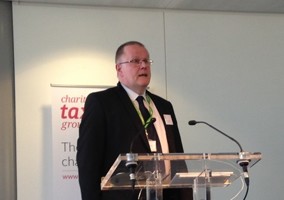A comprehensive study of tax returns has shown that increasing tax reliefs for wealthy individuals increases giving.
But it also found that it was relatively inefficient at encouraging new giving, and that giving Gift Aid directly to charities would work better.
Researchers from the recently-launched National Audit Office - University of Birmingham Tax Centre analysed over 75 million self-assessment income tax returns for the fiscal years from 2004/05 to 2012/13.
The research analysed reductions to the cost of giving for high-earners introduced in 2010 alongside a higher tax bracket of 50 per cent for incomes above £150,000 and a reduction in tax-free personal allowance for those earning above £100,000.
In 2013, the government lowered the higher tax bracket to 45 per cent.
The study found that for every £1 the government spent on tax incentives for higher-rate earners to donate, 35p was generated.
It found that the majority of this increase in giving was from people who already donated giving more.
In a blog post, the research authors, Kimberley Scharf, professor of economics at the University of Birmingham and Jonny Mood, audit manager at the NAO, said: “In other words, charities would get substantially higher donations if the value of the Gift Aid relief were given directly to them.”
They added: “Averaged out, these tax incentives induce only very small numbers of higher-rate taxpayers who have not donated to start donating.”
The NAO – University of Birmingham Tax Centre, launched on 23 January. It aims to:
- Identify and conduct research on tax issues;
- Encourage debate, stimulate ideas and exchange knowledge through events and networks;
- Enable government bodies, academics and tax practitioners to discuss needs and practical challenges.
Related articles











